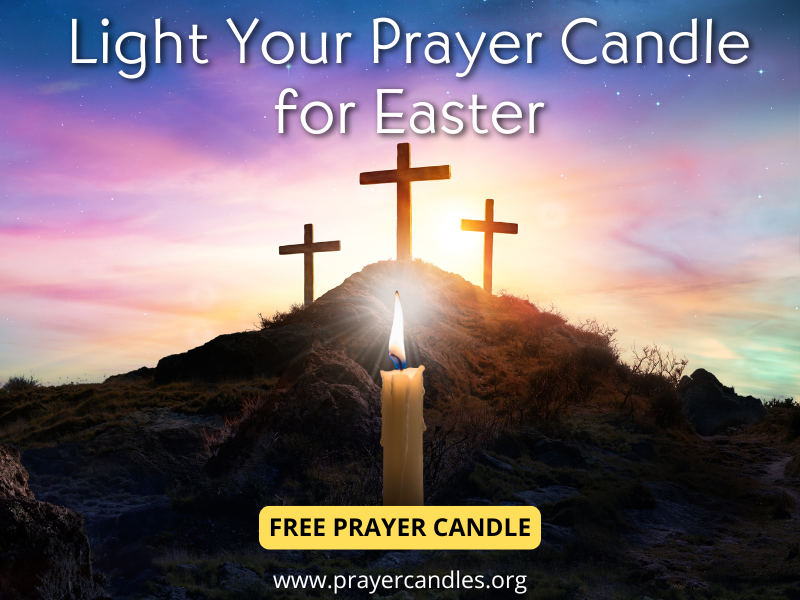We ask you, urgently: don't scroll past this
Dear readers, Catholic Online was de-platformed by Shopify for our pro-life beliefs. They shut down our Catholic Online, Catholic Online School, Prayer Candles, and Catholic Online Learning Resources essential faith tools serving over 1.4 million students and millions of families worldwide. Our founders, now in their 70's, just gave their entire life savings to protect this mission. But fewer than 2% of readers donate. If everyone gave just $5, the cost of a coffee, we could rebuild stronger and keep Catholic education free for all. Stand with us in faith. Thank you.Help Now >
Vatican Representatives Pay a Visit to Bishop Strickland After Tweet
FREE Catholic Classes
The Vatican's Dicastery for Bishops has concluded a formal investigation into Bishop Joseph E. Strickland and the Diocese of Tyler, Texas, as reported by multiple media sources and confirmed by EWTN News.

Bishop Joseph Strickland is known as a staunch guard of the Deposit of the Faith.
Highlights
6/26/2023 (1 year ago)
Published in Living Faith
Keywords: Bishop Joseph Strickland, Vatican, tweet, Deposit of Faith
This investigation, known as an apostolic visitation, represents a rare occurrence, though not unprecedented, of Rome intervening in a U.S. diocese. It suggests potential disciplinary action against Strickland, a prominent figure in Texas known for his staunch defense of pro-life causes, traditional Catholic liturgy, and orthodox Catholic teachings on marriage.
Since assuming leadership of the diocese in 2012, Strickland, 64, has faced criticism for his controversial social media posts. On May 12, Bishop Strickland Tweeted: Please allow me to clarify regarding, "Patrick Coffin has challenged the authenticity of the Pope Francis." If this is accurate I disagree, I believe Pope Francis is the Pope but it is time for me to say that I reject his program of undermining the Deposit of Faith. Follow Jesus. It is believed this post led to the reaction. Also a factor, is Bishop Strickland's recent visit to Los Angeles, where he joined a Eucharistic procession on June 16 and prayed with Christians there. The event aimed to protest the Los Angeles Dodgers, a Major League Baseball team, for honoring an anti-Catholic drag group during their annual Pride Night game. While some praised his involvement, others saw it as a breach of ecclesiastical protocol, with the Archdiocese of Los Angeles clarifying that it did not endorse or support the rally.
There should be no question why he was there. The real question is why other bishops and priests were not, including the Archbishop of Los Angeles, Jose Gomez. Why didn't the Archdiocese endorse or support a rally opposed to anti-Catholic bigotry?
Also, on June 21, Strickland critiqued a newly released Vatican document suggesting topics for discussion at an upcoming assembly related to the ongoing Synod on Synodality. His tweet expressed disagreement with proposals such as women deacons, married priests, and greater inclusion for the LGBT community, referring to them as a travesty and warning against deception.
Reports of the Vatican investigation began circulating among Catholic outlets, citing anonymous sources familiar with the matter. According to a source within the diocese who spoke with EWTN News on background, the apostolic visitation involved interviews with diocesan clergy and laity throughout the preceding week, concluding with a meeting between Strickland and the visiting bishops, Bishop Emeritus Gerald Kicanas of Tucson and Bishop Dennis Sullivan of Camden, New Jersey.
While the investigation addressed Strickland's social media usage, it also examined matters related to diocesan management. During his tenure, the Diocese of Tyler has witnessed significant changes, including the resignation of three diocesan officials in 2018, a decision Strickland believed would enable the diocese to better fulfill its mission.
Despite the controversies surrounding Strickland, the Diocese of Tyler has demonstrated positive signs of growth and stability. The diocese currently has 21 men in priestly formation, a remarkable ratio of seminarians per Catholic compared to other U.S. dioceses. Financially, the diocese is reportedly in good standing, exemplified by its ability to achieve 99% of its $2.3 million fundraising goal for the 2021 bishop's appeal six months ahead of schedule.
Isn't the proof of the Bishop's good character and quality evident from these facts?
The future course of action following the apostolic visitation remains uncertain. While a source close to Strickland expressed his desire not to magnify the visitation, an interviewee stated that the investigators were already discussing potential replacements for Strickland.
Apostolic visitations, as defined by the Dicastery for the Doctrine of the Faith (DDF), are extraordinary initiatives undertaken by the Holy See. These visits involve delegates appointed by the pope who assess ecclesial institutions, such as seminaries, dioceses, or religious orders, on his behalf. The aim is to assist the institution in enhancing its function within the life of the Church.
Apostolic visitations fall under the broader category of canonical visitations, where an ecclesial superior personally visits or sends a delegate to persons or institutions under their authority to maintain sound doctrine, morals, or rectify abuses. The pope can initiate apostolic visitations throughout the universal Church in his role as the supreme pontiff.
Unlike other papal delegates like nuncios, who are assigned to specific countries, apostolic visitors have a more specific and temporary mission, usually focused on a particular episode or emergency. The scope and authority of an apostolic visitation are determined by the mandate granted by the pope, and the visit concludes when the delegate submits a formal written report to the Holy See.
Pope Francis has frequently utilized apostolic visitations during his tenure. Bishop Daniel Fernandez Torres of the Diocese of Arecibo in Puerto Rico, for example, was reportedly the subject of an apostolic visitation conducted by Cardinal Blase Cupich of Chicago before his removal from office on March 9, 2022. The exact reason for his removal was not officially disclosed, but the metropolitan archbishop of Puerto Rico mentioned insubordination to the pope, likely connected to Torres' decision not to send his diocese's seminarians to a newly established national seminary and his refusal to sign a joint statement on the COVID-19 vaccination.
Several other bishops have also been removed from their dioceses or requested early retirement following apostolic visitations in recent years. For instance, Bishop Martin D. Holley was removed from the Diocese of Memphis in 2018 after an apostolic visitation looked into allegations of mismanagement. Similarly, Bishop Rogelio Livieres Plano was removed from the Diocese of Ciudad del Este in Paraguay in 2014 due to accusations of a lack of collegiality following an apostolic visitation.
In the case of Buffalo, Bishop Richard Malone requested early retirement, which Pope Francis accepted in December 2019, after facing significant criticism for his handling of clerical sex abuse cases. An apostolic visitation took place in October 2019 as part of the response to the situation.
In November 2022, the Vatican reportedly conducted an apostolic visitation in the Diocese of Knoxville, where Bishop Richard Stika faced allegations of covering up sex abuse. Although the Vatican supposedly requested Stika's resignation, he currently remains in office.
The Dicastery for Bishops initiated an apostolic visitation earlier this year in the Diocese of Toulon-Fréjus, a significant source of vocations in France. Notably, Ireland also underwent a high-profile visitation from 2010 to 2011.
It's important to note that apostolic visitations of dioceses with embattled bishops do not always lead to disciplinary action or the removal of the local ordinary. In May 2021, Cardinal Rainer Maria Woelki of Cologne faced an apostolic visitation amid severe criticism of his handling of abuse cases in the archdiocese. However, Pope Francis did not accept Woelki's offer to resign after the visitation concluded that he had not violated canon law.
Previous apostolic visitations included those conducted in U.S. seminaries (1983-1987), women's religious institutions in the U.S. (2009-2012), and the Legionaries of Christ (2009) after their founder was found guilty of various acts of abuse.
Notably, there has never been an apostolic visitation specifically related to former Cardinal Theodore McCarrick, the former archbishop of Washington and former head of the U.S. Conference of Catholic Bishops, who was found guilty of serial sexual abuse. Despite recent requests from U.S. Church leaders, such a visitation has not occurred.
While some apostolic visitations have led to full reports of their findings being published by the Vatican, most visitations remain undisclosed to the public. This lack of transparency has often resulted in removed bishops accusing the Vatican or others of misconduct. For example, Bishop Holley claimed he was removed as an act of revenge by Cardinal Donald Wuerl of Washington, who allegedly influenced the papal nuncio to initiate the investigation. Bishop Fernandez Torres of Puerto Rico also expressed that his removal from office was unjust and violated due process.
Join the Movement
When you sign up below, you don't just join an email list - you're joining an entire movement for Free world class Catholic education.

-

- Stations of the Cross
- Easter / Lent
- 5 Lenten Prayers
- Ash Wednesday
- Living Lent
- 7 Morning Prayers
- Mysteries of the Rosary
- Litany of the Bl. Virgin Mary
- Popular Saints
- Popular Prayers
- Female Saints
- Saint Feast Days by Month
- Pray the Rosary
He Is Risen: Embracing the Power of the Resurrection in a Weary World
Happy Easter: The Tomb is Empty! Love Has Triumphed
The surprising origins of the Easter Bunny — it’s not what you think!
Daily Catholic
 Daily Readings for Monday, April 21, 2025
Daily Readings for Monday, April 21, 2025 St. Anselm: Saint of the Day for Monday, April 21, 2025
St. Anselm: Saint of the Day for Monday, April 21, 2025 A Prayer for the Dying and a Special Soul: Prayer of the Day for Monday, April 21, 2025
A Prayer for the Dying and a Special Soul: Prayer of the Day for Monday, April 21, 2025 Daily Readings for Sunday, April 20, 2025
Daily Readings for Sunday, April 20, 2025St. Marian: Saint of the Day for Sunday, April 20, 2025
- Children's Prayer For Parents: Prayer of the Day for Sunday, April 20, 2025
![]()
Copyright 2025 Catholic Online. All materials contained on this site, whether written, audible or visual are the exclusive property of Catholic Online and are protected under U.S. and International copyright laws, © Copyright 2025 Catholic Online. Any unauthorized use, without prior written consent of Catholic Online is strictly forbidden and prohibited.
Catholic Online is a Project of Your Catholic Voice Foundation, a Not-for-Profit Corporation. Your Catholic Voice Foundation has been granted a recognition of tax exemption under Section 501(c)(3) of the Internal Revenue Code. Federal Tax Identification Number: 81-0596847. Your gift is tax-deductible as allowed by law.



 Daily Readings for Monday, April 21, 2025
Daily Readings for Monday, April 21, 2025 St. Anselm: Saint of the Day for Monday, April 21, 2025
St. Anselm: Saint of the Day for Monday, April 21, 2025 A Prayer for the Dying and a Special Soul: Prayer of the Day for Monday, April 21, 2025
A Prayer for the Dying and a Special Soul: Prayer of the Day for Monday, April 21, 2025 St. Marian: Saint of the Day for Sunday, April 20, 2025
St. Marian: Saint of the Day for Sunday, April 20, 2025

